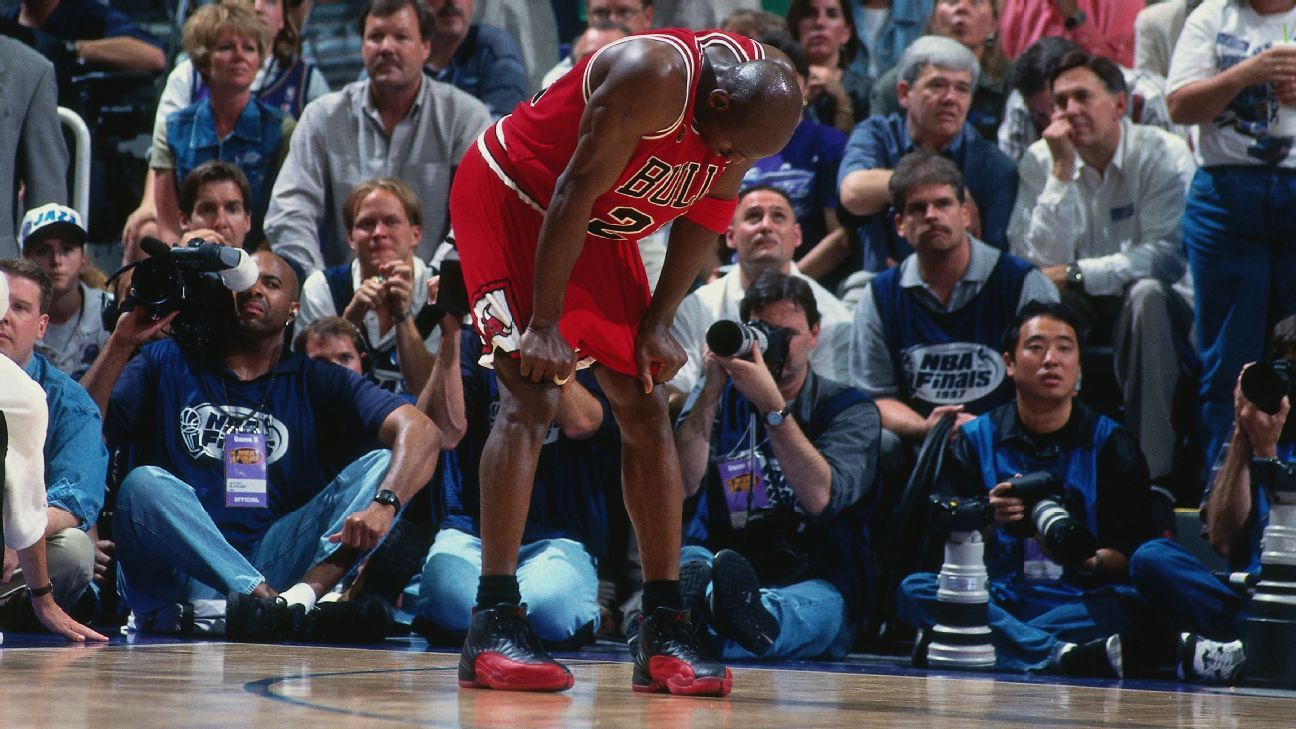Top Stories
Michael Jordan Rejects Load Management: “It Shouldn’t Be Needed”

UPDATE: In a powerful statement aired on NBC during the latest episode of “MJ: Insights to Excellence,” Michael Jordan vehemently rejected the concept of load management in the NBA. This urgent declaration comes as player absences become increasingly common, raising questions about the future of competitive sports.
During the show, which aired Tuesday night, Jordan engaged with interviewer Mike Tirico, emphasizing his belief that athletes should seize every opportunity to play. “Well, it shouldn’t be needed, first and foremost,” Jordan asserted. “You know, I never wanted to miss a game because it was an opportunity to prove.”
Jordan’s remarks resonate deeply with fans who cherish the dedication of athletes. He highlighted his commitment to the audience, stating, “I want to impress that guy way up on top who probably worked his (butt) off to get a ticket.” This perspective underscores the emotional connection players have with their supporters, particularly in an era where load management is often seen as a necessary strategy for preserving player health.
The basketball legend shared his personal experiences, recounting instances where he played through adversity, including a notable case of food poisoning during Game 5 of the 1997 NBA Finals against the Utah Jazz. Despite being bedridden just hours before the game, Jordan scored 38 points, leading the Chicago Bulls to a crucial victory that put them one win away from the championship. This iconic match, now famously dubbed “The Flu Game,” showcases Jordan’s relentless drive to perform, even under extreme circumstances.
Jordan continued to reflect on his duty as an entertainer, stating, “You have a duty that if they’re wanting to see you, and as an entertainer, I want to show.” He even acknowledged the fans who cheered against him, saying, “Yeah, because I know he’s probably yelling at me and I want to shut him up.”
His comments come at a time when the league is grappling with the implications of load management on fan engagement and game attendance. As players sit out for rest, many fans are left feeling disappointed and frustrated. Jordan’s dedication to playing every game stands in stark contrast to today’s trends, igniting discussions on the responsibilities of athletes to their fans.
Looking ahead, Jordan’s remarks may influence how current NBA players approach their careers. With the league’s ongoing evolution, fans and analysts alike will be watching closely to see if Jordan’s values resonate with younger athletes. His take on load management could spark a broader movement advocating for more consistent player participation in games.
The conversation surrounding load management is more urgent than ever. As the NBA season progresses, Jordan’s insights may challenge the status quo and encourage players to reconsider their approach to game participation.
Stay tuned for further updates on this developing story as fans and analysts react to Jordan’s compelling stance on load management and the future of competitive spirit in the NBA.
-

 World2 weeks ago
World2 weeks agoGlobal Air Forces Ranked by Annual Defense Budgets in 2025
-

 World2 weeks ago
World2 weeks agoMass Production of F-35 Fighter Jet Drives Down Costs
-

 Top Stories2 weeks ago
Top Stories2 weeks agoNew ‘Star Trek: Voyager’ Game Demo Released, Players Test Limits
-

 Top Stories2 weeks ago
Top Stories2 weeks agoDirecTV to Launch AI-Driven Ads with User Likenesses in 2026
-

 Science2 weeks ago
Science2 weeks agoTime Crystals Revolutionize Quantum Computing Potential
-

 World2 weeks ago
World2 weeks agoElectrification Challenges Demand Advanced Multiphysics Modeling
-

 Lifestyle2 weeks ago
Lifestyle2 weeks agoLia Thomas Honored with ‘Voice of Inspiration’ Award at Dodgers Event
-

 Entertainment2 weeks ago
Entertainment2 weeks agoFreeport Art Gallery Transforms Waste into Creative Masterpieces
-

 Lifestyle2 weeks ago
Lifestyle2 weeks agoDiscover Reese Witherspoon’s Chic Dining Room Style for Under $25
-

 Health2 weeks ago
Health2 weeks agoGavin Newsom Critiques Trump’s Health and National Guard Plans
-

 Entertainment2 weeks ago
Entertainment2 weeks agoFast & Furious Coaster Hits the Track at Universal Studios
-

 Health2 weeks ago
Health2 weeks agoResearchers Uncover New Insights into Cancer Mortality Causes









